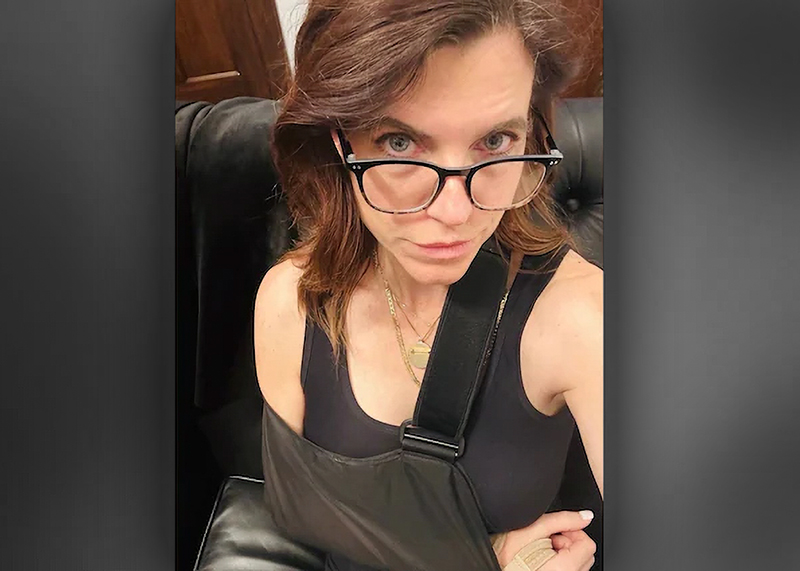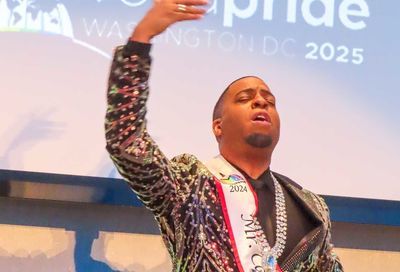''Conscience Clause'' Bills Pass through Legislature
LGBT groups call on Governor McDonnell to veto Virginia adoption measure
With today’s vote in the Virginia House of Delegates, it’s now up to Gov. Bob McDonnell (R) to sign – or not – a measure to allow private child-placement agencies to refuse to place children with prospective adoptive or foster parents if doing so is in violation of that agency’s written or stated religious or moral convictions or policies, even if the agencies receive state funding.
The Senate passed its version of the ”conscience clause,” SB 349, Feb. 9 by a 22-18 margin, which included the support of every Senate Republican, along with two Democrats, Chuck Colgan (D-Manassas, Manassas Park and Prince William Co.) and Phil Puckett (D-Norton, Radford, Wise, Buchanan, Russell, Tazewell and Pulaski counties). The House approved the Senate version of the bill today, 71-28, the last hurdle before heading to the governor. By the same margin, the House passed its own version of the adoption bill, HB 189, Feb. 3. Yesterday, Feb. 21, the Senate passed the House version 22-18.
Both bills bolster a 5-1 decision made by the State Board of Social Services in December that allows state-licensed private adoption and foster care agencies to refuse prospective parents based on sexual orientation, religion, age of the prospective parents, gender, disability, family status or political beliefs.
In this final stage, opponents of the measure are calling on McDonnell, who is considered a possible vice presidential pick for the 2012 Republican nominee, to veto the bill. McDonnell has indicated he supports the bill, but opponents are holding out hope that he will avoid signing controversial bills into law in order to be able to appeal to political independents, either as a vice presidential pick or if he chooses to run for the presidency at a later time.
Immediately following Tuesday’s Senate vote on HB 189, Equality Virginia, the commonwealth’s primary LGBT-advocacy group, released a statement asking McDonnell to veto the adoption measure, which they say will allow state-licensed and state-funded adoption and foster care agencies to deny services to prospective parents because of their sexual orientation.
”Equality Virginia believes that the only factor that should control adoption and foster care placements is the best interests of the child,” said James Parrish, executive director of Equality Virginia. ”No prospective parent or child in the child welfare system should be refused services on the basis of one factor.”
Parrish said the pair of bills ”make a mockery out of any claim that child-placing agencies licensed by Virginia operate in the best interests of the children they serve.” He also pointed out that the legislation could endanger the lives or mental health of LGBT children who could be placed in homes preferred by placement agencies, where such children may be subjected to suspect ”reparative therapies” in an effort to manipulate sexual orientation or gender identity.
Proponents of the bills say the ”conscience clause” does not change existing law, but only protects private child placement agencies, specifically faith-based ones, from violating their religious beliefs. Virginia law already bans same-sex couples from adopting, leaving only married opposite-sex couples or single people – of any sexual orientation or gender identity, theoretically – able to adopt.
But opponents argue the measure was not about religious freedom, but about singling out LGBT prospective foster parents for discrimination. They argue that any one of the 81 placement agencies currently contracting with the state could abruptly change their policies, reducing the number of ”friendly” agencies available to LGBT adoptive or foster parents.
When the Senate passed its version of the bill Feb. 9, the General Assembly’s sole out gay legislator, Sen. Adam Ebbin (D-Arlington, Alexandria, Fairfax Co.), warned that such a measure could eventually lead to future legislation that ”does directly what this bill does indirectly, achieving the ultimate goal” of banning outright the ability of LGBT individuals to adopt.
Support Metro Weekly’s Journalism
These are challenging times for news organizations. And yet it’s crucial we stay active and provide vital resources and information to both our local readers and the world. So won’t you please take a moment and consider supporting Metro Weekly with a membership? For as little as $5 a month, you can help ensure Metro Weekly magazine and MetroWeekly.com remain free, viable resources as we provide the best, most diverse, culturally-resonant LGBTQ coverage in both the D.C. region and around the world. Memberships come with exclusive perks and discounts, your own personal digital delivery of each week’s magazine (and an archive), access to our Member's Lounge when it launches this fall, and exclusive members-only items like Metro Weekly Membership Mugs and Tote Bags! Check out all our membership levels here and please join us today!


















